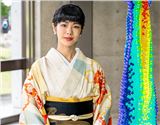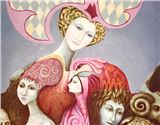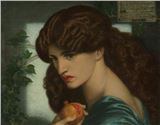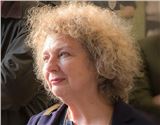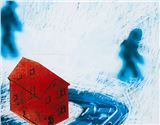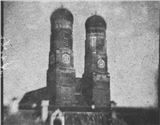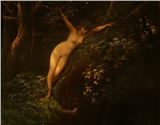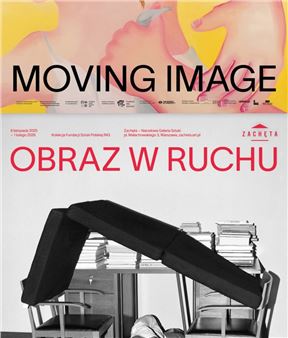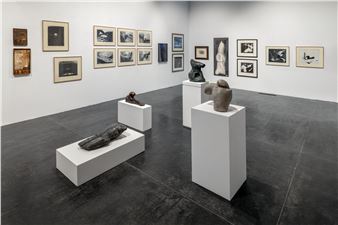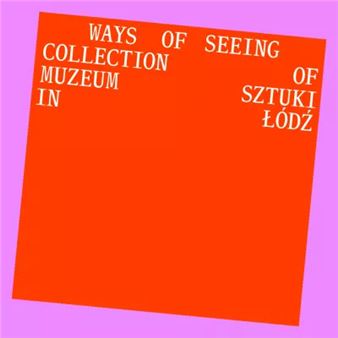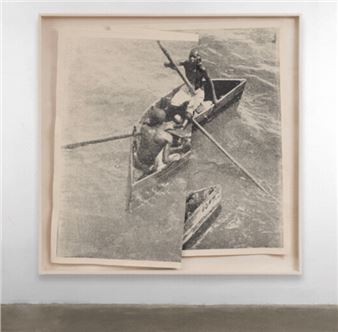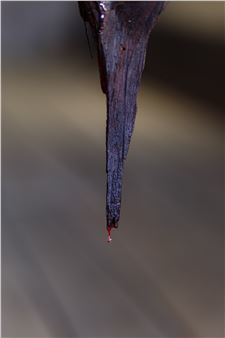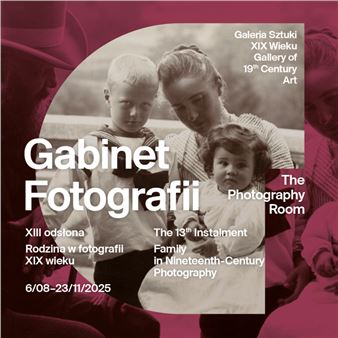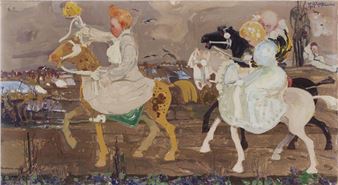Poganki
The relationships addressed in the exhibition are not always downright romantic. Close ties between women, mutual understanding and empathy have a long history and manifest themselves in womenвҖҷs circles reactivated today, among other phenomena. Such connection is the topic of Katarzyna GГіrnaвҖҷs photographic series Kasie-Threads (Kasie-niteczki), created with Katarzyna Kozyra while the artist was still a student in the 1990s. Mutual care and tenderness is addressed in the work of Karolina Sobel, the artist behind the large-scale photographs on fabric from the series If You Are Ok, I Am Ok.
An imaginary queer community also features in Katarzyna PerlakвҖҷs film Niolam ja se kochaneczke, where women in traditional folk attires and decorative balaclavas sing regional songs, recite poems and quote old proverbs. The artist seeks to introduce motifs of female non-heteronormativity in traditional folk culture. A modern-day queer community can be seen in photographs and videos by Kinga Michalska, who lives in Canada. Their works offer an intimate insight into the life of her community formed of queer, trans, non-binary and intersex folks, and drag queens, who spend their lives surrounding each other with love and care, giving birth to children and bringing them up, engaging in rituals of the everyday.
The show also features works by artists who explore the presence of non-heteronormative couples in public space: Karolina BreguЕӮa in her famous series Let Them See Us (Niech nas zobaczД…) and Aleka Polis in her short video works that portray her walk around Warsaw in the company of her female partner. Their being together, and the exhibition as a whole, can be summarised with the following quote from letters exchanged between the Russian poetess Sophia Parnok and Nina Vedeneyeva: вҖңLetвҖҷs be happy come what may.вҖқ
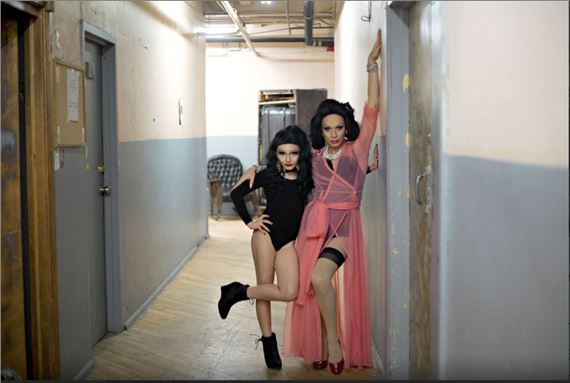
Recommended for you
The relationships addressed in the exhibition are not always downright romantic. Close ties between women, mutual understanding and empathy have a long history and manifest themselves in womenвҖҷs circles reactivated today, among other phenomena. Such connection is the topic of Katarzyna GГіrnaвҖҷs photographic series Kasie-Threads (Kasie-niteczki), created with Katarzyna Kozyra while the artist was still a student in the 1990s. Mutual care and tenderness is addressed in the work of Karolina Sobel, the artist behind the large-scale photographs on fabric from the series If You Are Ok, I Am Ok.
An imaginary queer community also features in Katarzyna PerlakвҖҷs film Niolam ja se kochaneczke, where women in traditional folk attires and decorative balaclavas sing regional songs, recite poems and quote old proverbs. The artist seeks to introduce motifs of female non-heteronormativity in traditional folk culture. A modern-day queer community can be seen in photographs and videos by Kinga Michalska, who lives in Canada. Their works offer an intimate insight into the life of her community formed of queer, trans, non-binary and intersex folks, and drag queens, who spend their lives surrounding each other with love and care, giving birth to children and bringing them up, engaging in rituals of the everyday.
The show also features works by artists who explore the presence of non-heteronormative couples in public space: Karolina BreguЕӮa in her famous series Let Them See Us (Niech nas zobaczД…) and Aleka Polis in her short video works that portray her walk around Warsaw in the company of her female partner. Their being together, and the exhibition as a whole, can be summarised with the following quote from letters exchanged between the Russian poetess Sophia Parnok and Nina Vedeneyeva: вҖңLetвҖҷs be happy come what may.вҖқ

 ARTISTS
ARTISTS
